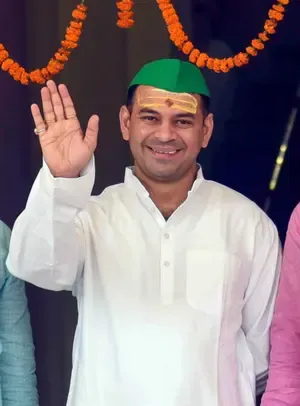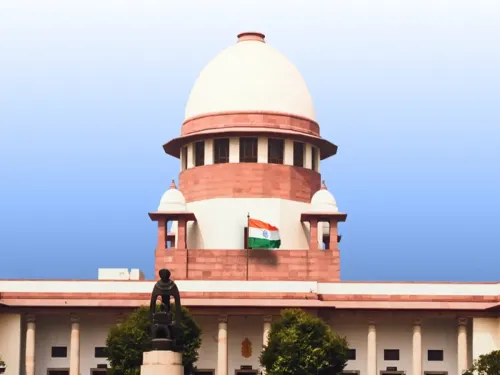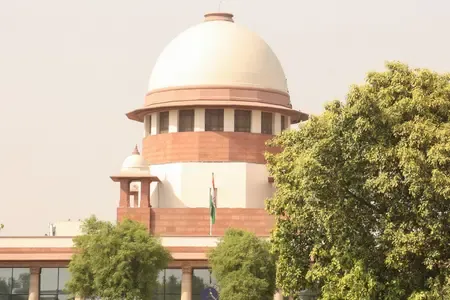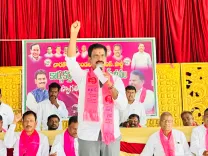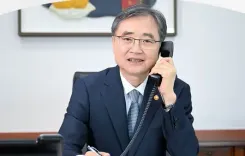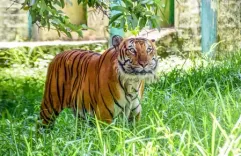Have Maldives and Sri Lankan Leaders Shifted Their Anti-India Stance Under PM Modi's Charm?
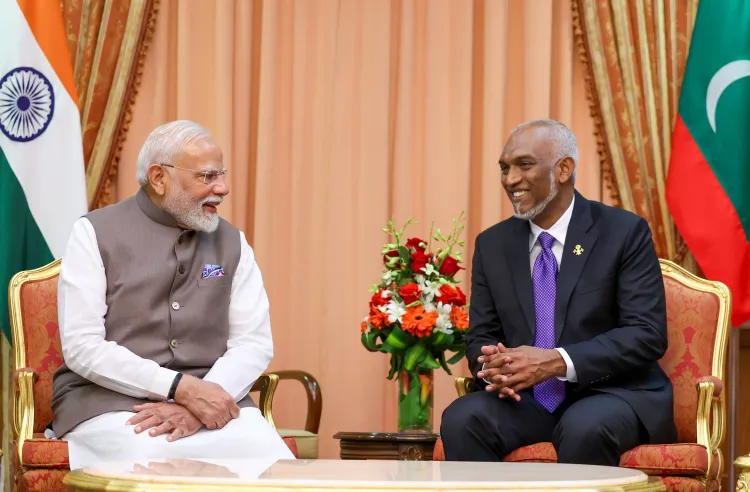
Synopsis
Key Takeaways
- Modi's diplomatic charm has prompted a shift in Maldives and Sri Lanka's policies towards India.
- Both leaders have expressed gratitude for India's support during economic challenges.
- Increasing ministerial visits from Maldives to India highlight strengthening ties.
- The geopolitical landscape in the Indian Ocean is evolving with India's growing influence.
- China's role remains significant, raising concerns for Indian interests.
Colombo, July 30 (NationPress) Under the captivating influence of Prime Minister Narendra Modi's diplomatic charm, Maldives President Mohamed Muizzu and Sri Lankan President Anura Dissanayake—both previously advocates of a strong anti-India stance—have remarkably altered their attitudes towards New Delhi, as reported by Lankan media on Wednesday.
This transformation was highlighted during Dissanayake's ongoing State Visit to the Maldives from July 28 to 30, which followed PM Modi's significant visit to Male last week.
With Modi's visit to the Maldives concluding, Sri Lanka's pro-China JVP leader, President Anura, traveled to the Maldives at the Maldivian President’s invitation. The shift in Anura and the JVP mirrors the change seen with the Maldivian President, both having previously endorsed anti-India policies before assuming office, according to Mawrata News.
During his inaugural foreign visit as President in December, Dissanayake expressed gratitude to India for its substantial support amid an economic crisis and assured PM Modi that he would prevent the island from being used in ways harmful to Indian interests.
On July 25, PM Modi arrived in Male for a two-day State Visit to partake in the Maldives' 60th Independence Day celebrations as the Guest of Honour.
This was PM Modi's third visit to the Maldives—following trips in 2018 and 2019—and the first by a Head of State during Mohamed Muizzu’s presidency, which began in November 2023.
In a notable gesture, President Muizzu welcomed PM Modi at the Male airport upon his arrival from the UK, with key ministers also present to greet him.
Breaking from tradition, Muizzu did not choose India for his initial State Visit as President, indicating a clear foreign policy shift. Furthermore, he allowed the Chinese research vessel Xiang Yang Hong 3—viewed as a surveillance ship—to dock in Maldivian waters, raising Indian concerns about potential intelligence gathering.
Nonetheless, Muizzu's five-day visit to India in October—his second trip in four months after attending PM Modi's swearing-in—demonstrated a significant diplomatic pivot. Previously supporting the 'India Out' campaign, Muizzu now seeks to navigate complex relations while balancing China's influence.
This year alone, New Delhi has welcomed nearly six ministerial visits from the Maldives in the first half. External Affairs Minister (EAM) S. Jaishankar's first engagement in 2025 was with Maldives' Foreign Minister.
As Mawrata News reported, Modi viewed Maldives as a younger brother who would eventually reconcile after a period of anger. Ultimately, the Maldivian President turned to India to seek assistance with the nation's economic crisis, and Modi, putting aside past grievances, extended his help.


